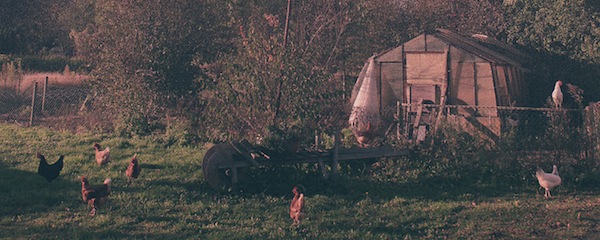
photo by Guian Bolisay
by Lynda Nash
Many years ago I wrote a short story called ‘Shining Halo’. I thought it was great. In fact, I’d go as far as to say I loved it and thought, without question, that everyone else would, too. So I paid a £10 fee and sent it to a competition. It didn’t win. It didn’t even get a commendation. I couldn’t understand why… until many years later when I re-read that story and cringed. I hoped whoever had judged that competition didn’t have a good memory for names.
So why did my precious literary effort fail to make an impression?
Did it fit the competition criteria? No. Did it open with a bang? Again, no. Did it have a less-than-self-indulgent plot? No, it didn’t. And please don’t mention proof reading…
In my defence, Your Honour, I was a beginner; I knew no better.
Actually, the chances of the judge having read my story in its entirety were very slim. As a creative writing tutor, who has judged competitions, I now know that a story can be evaluated by the end of the first paragraph – sometimes even after the first few sentences. One particular competition I adjudicated attracted sacks full of entries, so a sift was performed to separate the possibles from the not-possibles. Did I feel guilty for not reading every word? Yes. Like myself with ‘Shining Halo’, the entrants believed in their stories and had paid the entry fee. I wished they could have all won.
In the days when submissions were made by snail mail, writers had a ‘cooling off period’ – the time between sealing the envelope and posting it – when you might check your story one more time before letting it out into the world. Today, most competitions accept electronic submissions and it’s far too easy to click ‘send’. Once your email is floating through the ether any chance of a last minute check is floating with it.
In a short story you have a limited amount of time to hook your reader. In competitions that time is even less. When your entry pops into the inbox of X magazine or Y website – unless it’s a little known competition – it will be surrounded by lots of other entries all vying for the top spot, therefore it is imperative that your story attracts attention. It needs to stand up and get noticed. But before you rush off and change your characters into superheroes, set your narrative on the edge of a cliff, or start with a literal BANG! here are a few tips to give you a better chance of making it into the possible pile.
~
1. Submit in haste repent at leisure. Read your story aloud, give it to a beta reader and get them to read it aloud. Get some feedback and rewrite if necessary. Put story in a drawer for a few days or weeks then read your story aloud, give it to a beta reader…etc.
2. Bizarre is interesting, but not for its own sake. As shock value, it isn’t valuable.
3. Love is interesting – if you’re in the first flush of romance, but if not it can be a little… yawn. Some love stories may tug at our heart strings or make us sing but unrequited love, forbidden love, extra-marital affairs or office romances, unless done well, generally do not make interesting reading. (I welcome comments to the contrary!)
4. Horror, like love, is great if done well. One person’s heart may jump when your main character is surrounded by headless dolls who speak through their necks, but another person may simply shrug or even giggle. You can’t please everyone, it’s true, but best try your horror story on a wider audience before parting with any money.
5. Back story. There’s no time for it. If the word count stipulates 2,000 words, don’t waste them telling your readers that character A used to work for character B and that’s how they met character C and became friends with character D. Just get on with the story and supply background information if and when needed.
6. Whose story is it? Character A, B, C or D? It can’t be everyone’s. So, in order to avoid any confusion for your readers, before you begin to write it, establish whose story you are telling and from whose point of view.
7. Hook them with the first line. Forget the weather – unless it’s the most important aspect of your tale, don’t give it more importance than it deserves. Start with dialogue or action and don’t give everything away – we readers are a nosy lot and raising questions will entice us to keep reading to find out what happens next.
8. Mirror, mirror on the wall, who is the fairest of them all? It worked in Snow White but using mirrors to enable your characters to describe themselves has been so overdone it is now a cliché. Description, like back story, works best on a need to know basis.
9. Dream, dream, dream… if you’re old enough to remember when Victoria Principal woke up in the TV soap Dallas and found that the past few months had been a dream and her husband was, in fact, still alive and in the shower, you will remember how cheated you felt. Don’t end your story ‘and it was all a dream’. Please.
10. It’s a kind of magic. Vampires, aliens, magical creatures, wizards, beasts, lightning bolts, spells, elves, dwarfs, trolls and talking beavers may be better left to J.R.R.Tolkien, C.S. Lewis and J.K. Rowling. If the most interesting thing about your story is its unhuman characters, best wait for a sci-fi comp. Generally, spiders/lizards/fish do not make good narrators.
11. Fancy formatting. You may think Arial looks good for action scenes, Comic Sans for lighter moments and Garamond for everything else. And that single line spacing, with 1.5 margins, does save paper… but this is the formatting equivalent of writing on a postcard with different coloured pens. Correct formatting: 12 point Times New Roman, double spaced, indented paragraphs, line spaces only to indicate time has passed or a change in point of view, a new paragraph for a new speaker, page numbers, 2.5 margins. This is the default style, unless otherwise stated.
12. Read the guidelines! Not all competitions have the same specifications. Some supply submission instructions, some don’t. If in doubt, ask. Once you know what they want, give it to them. Remember to include your contact details.
And remember, also, that no tip should be followed off a cliff. Just write, edit and polish, submit and keep your fingers crossed. Good luck!
~
To get you started, check out the competition calendars on the links below:
THRESHOLDS Short Story Competition and Submission Deadlines
THRESHOLDS List of Annual Competitions
Christopher Fielden Short Story Competitions
Prize Magic UK Writing Competitions

